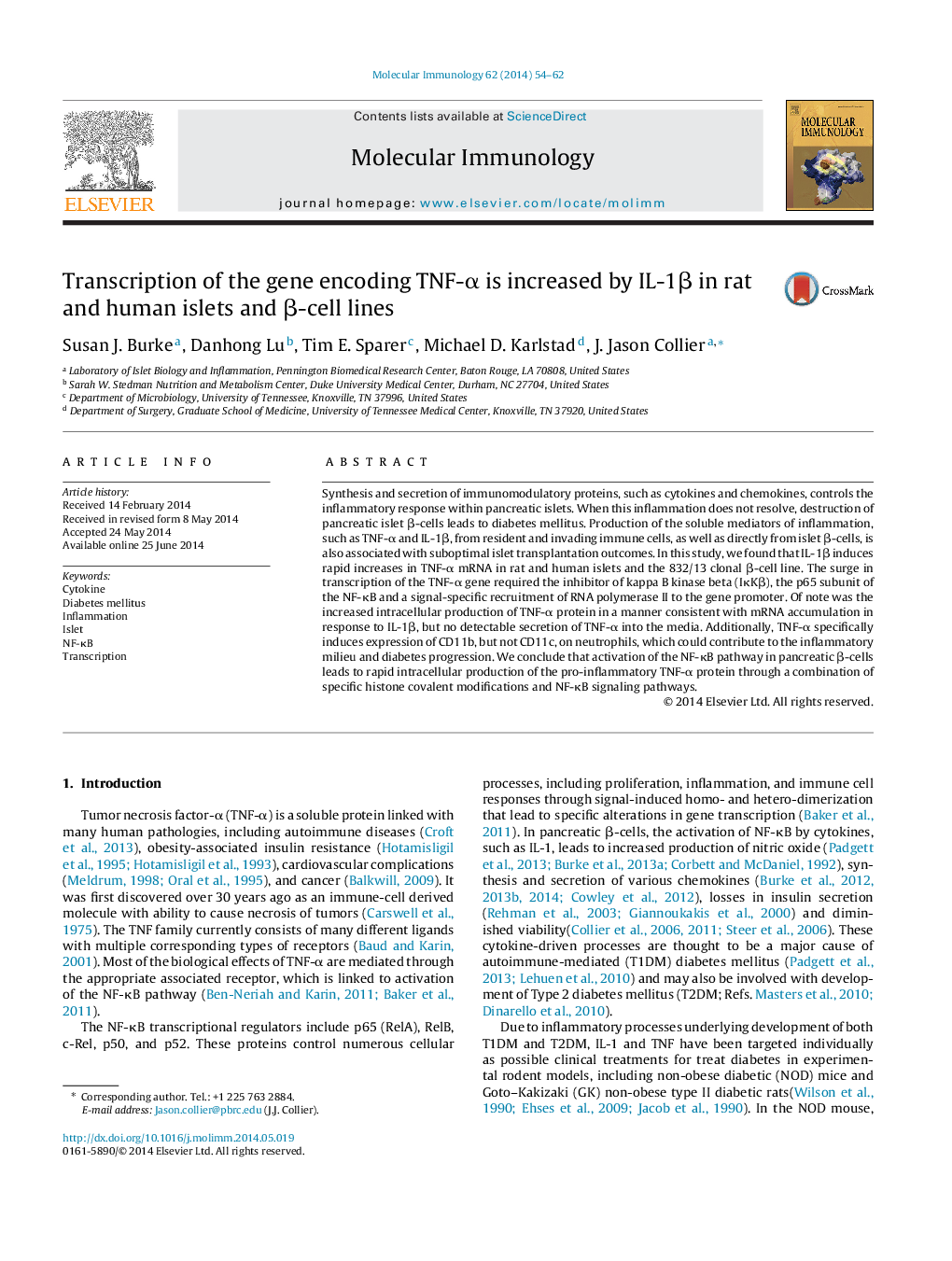| کد مقاله | کد نشریه | سال انتشار | مقاله انگلیسی | نسخه تمام متن |
|---|---|---|---|---|
| 5916765 | 1163756 | 2014 | 9 صفحه PDF | دانلود رایگان |

- TNF-α mRNA and protein are increased by IL-1β in pancreatic β-cells.
- Induction of TNF-α requires IκKβ, a component of the NF-κB signaling pathway.
- p65, a NF-κB transcriptional subunit, is recruited to the TNF-α gene promoter.
- Methylation status of histone H3 at the TNF-α gene is altered in response to IL-1β.
- RNA polymerase II is recruited to the TNF-α gene promoter in response to IL-1β.
Synthesis and secretion of immunomodulatory proteins, such as cytokines and chemokines, controls the inflammatory response within pancreatic islets. When this inflammation does not resolve, destruction of pancreatic islet β-cells leads to diabetes mellitus. Production of the soluble mediators of inflammation, such as TNF-α and IL-1β, from resident and invading immune cells, as well as directly from islet β-cells, is also associated with suboptimal islet transplantation outcomes. In this study, we found that IL-1β induces rapid increases in TNF-α mRNA in rat and human islets and the 832/13 clonal β-cell line. The surge in transcription of the TNF-α gene required the inhibitor of kappa B kinase beta (IκKβ), the p65 subunit of the NF-κB and a signal-specific recruitment of RNA polymerase II to the gene promoter. Of note was the increased intracellular production of TNF-α protein in a manner consistent with mRNA accumulation in response to IL-1β, but no detectable secretion of TNF-α into the media. Additionally, TNF-α specifically induces expression of CD11b, but not CD11c, on neutrophils, which could contribute to the inflammatory milieu and diabetes progression. We conclude that activation of the NF-κB pathway in pancreatic β-cells leads to rapid intracellular production of the pro-inflammatory TNF-α protein through a combination of specific histone covalent modifications and NF-κB signaling pathways.
Journal: Molecular Immunology - Volume 62, Issue 1, November 2014, Pages 54-62